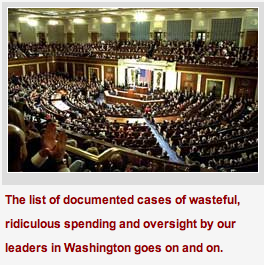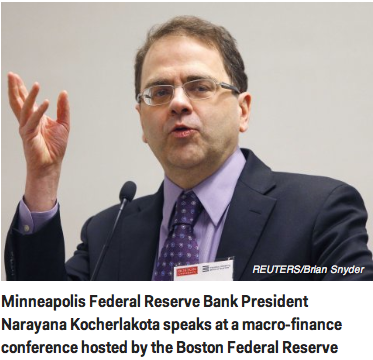Bonds & Interest Rates
 The Dow fell 128 points yesterday. This followed news that the federal government – the nation’s largest employer and largest industry – was getting ready to turn off the lights.
The Dow fell 128 points yesterday. This followed news that the federal government – the nation’s largest employer and largest industry – was getting ready to turn off the lights.
CNN has the latest:
| A government shutdown could cost the still-struggling US economy roughly $1 billion a week in pay lost by furloughed federal workers. And that’s only the tip of the iceberg.
First, there are the estimated 800,000 federal employees who will be off the job. That’s roughly the same number of workers employed by all the auto assembly lines and auto parts factories across the country. But economists say the impact will come not just from those lost wages, but also from related businesses cutting back or halting their operations. That will lead to a pullback in spending by employees of affected companies. Then, there’s the impact from increased business uncertainty that trims investments and disrupts financial markets. The total economic impact is likely to be at least 10 times greater than the simple calculation of wages lost by federal workers, said Brian Kessler, economist with Moody’s Analytics. His firm estimates that a three- to four-week shutdown will cost the economy about $55 billion. That would mean that the economic impact from a month-long shutdown would be roughly equal to the combined disruption caused by Hurricane Katrina and Superstorm Sandy, not counting the property damage that accompanied those storms. |
What do you think, dear reader? Would sending the feds home be such a bad thing?
Yes, they’re spending money. And yes, if they weren’t spending money there would be a slowdown in the money-spinning economy.
But why would that be so bad?
What if the person on food stamps had to find work – or starve?
What if the defense contractors couldn’t pay their lobbyists?
What if the educators at the Department of Education stopped educating? What if the health-care zombies at the National Institute of Health went home? What if the paper shufflers stopped shuffling paper… the rubber stampers stopped rubber stamping… and the snoops stopped snooping?
Would that be such a bad thing?
Not in our book.
Rape or Seduction?
We are developing a clean and simple way to understand political economy.
We begin by understanding that politics and economics do not go together. They are two separate things. Mix them up and you end up with a mess.
Look, you can get what you want – more or less – by force. Or by peaceful trade and persuasion. By rape or by seduction?
Force is the easier and quicker option, usually. Which is why it is so popular. And why people like government so much: It is the only institution that gets to lie, cheat, steal… and even murder… lawfully.
Why?
Because it makes the laws!
That is why a government shutdown would be a good thing. The government sponsored, taxpayer supported, voter approved, Fed-financed lying, cheating, stealing and murdering would stop (if only for a while).
That’s why this fight over the shutdown is so interesting. Zombies – by definition – are kept alive by force.
They get subsidies, handouts, contracts, salaries – all directly or indirectly thanks to the power of the state. They live on politics, not economics.
And today, there’s hardly a family in America that doesn’t have at least one zombie in the spare bedroom. So much of the economy has been zombified that the press can now say that “nobody” wants a shutdown.
No Wonder Government Is So Popular
The fight over the shutdown is not about stopping the machinery of force. It’s about who gets to use it for what purpose: Whose property gets stolen? Who gets the stolen goods?
That’s what elections are about too… and why so much money is spent on them: There’s a lot of wealth at stake.
And not just money, but power too. Bossing other people around is almost as gratifying as stealing their money. And when your group controls a great empire, such as the United States of America, you get to boss people around at home and abroad. This must be a great thrill, judging by the number of people who are so eager to do it.
“The government that governs best, governs least,” said Thomas Jefferson. He was right. The less “governing” you do, the less you are lying, cheating, stealing and murdering people. The less you are using force to get what you want.
Take away the brute force, and all you have is dull economics – making things, trading, providing services, marketing, investing.
No wonder government is so popular.
Bill Bonner is the founder of Agora Inc. and cofounder of The Daily Reckoning. He is also a three-time New York Times best selling author.
The U.S. government began its first partial shutdown in 17 years, idling as many as 800,000 federal employees, closing national parks and halting some services after Congress failed to break a partisan deadlock by a midnight deadline.
Congressional leaders have scheduled no further negotiations on spending legislation, raising concerns among some lawmakers that the shutdown could bleed into the more consequential fight over how to raise the U.S. debt limit to avoid a first-ever default after Oct. 17.
As our country heads toward another midnight fiscal brawl, let me give you some examples of how completely irresponsible our leaders are:
In 2010, the Internal Revenue Service spent $4.1 million on a lavish conference for 2,609 of its employees in Anaheim, California. Expenses included $50,000 for line dancing and “Star Trek” parody videos, and $64,000 in conference perks for employees, plus free meals, cocktails and hotel-suite upgrades.
In 2012, the Department of Agriculture spent $300,000 on activities promoting caviar produced in Idaho.
The Federal Communications Commission spent $2.2 billion in 2012 to provide phones to low-income Americans, up from $819 million in 2008. A review found that 41 percent of over 6 million recipients were either ineligible or failed to prove their eligibility for the program.
 The Department of Energy’s Savannah River facility spent $7.7 million on severance packages for 526 temporarily hired contract workers instead of issuing layoff notices. That’s over $14,600 per “temporary” employee.
The Department of Energy’s Savannah River facility spent $7.7 million on severance packages for 526 temporarily hired contract workers instead of issuing layoff notices. That’s over $14,600 per “temporary” employee.
Taxpayers spent $700 million in stimulus funds on the Department of Energy’s Smart Grid Demonstration Program. An audit found that $12.3 million in reimbursements lacked required supporting documentation.
The U.S. Secret Service spent $23 million to purchase a new fleet of luxury parade limousines. No competitive bids were sought.
The White House is spending $376 million on a four-year renovation of the Executive Mansion, which includes a second Oval Office for the president to use during the renovation.
The General Services Administration’s poor oversight of 33 courthouse-construction projects from 2000 to 2010 cost taxpayers $835 million in extra building expenses.
The National Endowment for the Arts gave a $100,000 grant to fund development of a video game about a female superhero sent to save planet Earth from climate changes.
The Transportation Security Administration let 5,700 pieces of unused security equipment worth $184 million sit in storage in a Dallas warehouse, costing taxpayers $3.5 million annually to lease and manage.
This year, the U.S. government will pay $65 per year, per account, in service fees to keep 13,712 of its empty bank accounts — with, I repeat, no money in them — on the books, costing taxpayers $890,000.
Medicare was recently found to have overpaid hospitals and clinics for a kidney dialysis drug to the tune of $800 million per year, an error that won’t be corrected until new rates are established in 2014.
A 2012 report from the Treasury Inspector General for Tax Administration identified $757 million in fraudulent tax refunds to prisoners in 2010.
Due to poor oversight, over 1,000 Pennsylvania prisoners were able to collect weekly unemployment benefits over a four-month period, costing taxpayers $7 million.
A fiscal 2011 Performance and Accountability Report from the Social Security Administration (SSA) found it overpaid $2.11 billion in Social Security benefits.
The same report found that the SSA overpaid old-age, survivor and disability insurance benefits by $934 million in fiscal 2010 alone.
Also in 2010, 117,000 individuals received $850 million in cash benefits by double-dipping into Social Security’s disability insurance program and the federal unemployment insurance program.
The U.S. Department of Agriculture awarded a $149,992 grant to researchers at Fairleigh Dickinson University in New Jersey to study college students’ on-campus dining selections.
The Office of Naval Research conducted a $450,000 study to determine whether babies would pay attention to unintelligent robots.
In a study costing $681,387, the U.S. Air Force Office of Scientific Research confirmed that men bearing firearms appear taller, stronger and manlier than those who don’t carry firearms.
The same U.S. Air Force office also conducted a $300,000 study that concluded that the first bird on Earth probably had black feathers.
And the list of documented cases of wasteful,
ridiculous spending and oversight by our leaders
in Washington goes on and on.
And now our leaders are bickering — not about how to cut wasteful spending and improve its operating efficiency, or even to really tighten Washington’s collective belt — but about which party can get the most political clout and pork barrel concessions stuffed in any bill that raises our country’s debt ceiling so we can go deeper into hock. As if $17 trillion in debt isn’t enough.
Meanwhile, these very leaders are doing everything in their power to hunt down every penny of citizens’ wealth, no matter what the cost, to find out where that money is.
The IRS is running around the globe strong-arming all foreign banks and financial institutions to disclose every American account that’s been set up offshore.
Don’t comply, the IRS says, and we’ll essentially blacklist you and withhold up to 30 percent of any income and dividends sent to your bank or institution.
As a result, Americans, such as myself, are now finding it increasingly difficult to live and work overseas.
And then there’s the spying program. The NSA knows everything you are doing online. It can determine your shopping habits and turn that information over to the IRS if it wants. It can read your emails. It can monitor you down to your daily schedule and even locate where you are at any moment in time.
Quite frankly, I am sick of it.
Our country is going to hell in a handbasket.
According to my work on war cycles, it’s going to get a whole lot worse in the months and years ahead.
As I’ve previously shown you, the war cycles ramp up all the way into 2020. They are already in motion. The turn up came in March of this year. That’s when North Korea threatened to nuke us. Then there was Egypt, the Boston Marathon bombing, and then Yemen and Syria.
There are hot spots all over the world. Some international in scope. Some are civil wars and uprisings, revolutions. Soon, the war cycles will hit Europe, where the next round will find the euro area breaking up, the euro tanking, and civil-war-like conditions breaking out all over the Continent.
And then it will hit our shores. It will get ugly, very ugly.
But there is a silver lining to all this. For our country, I think it’s this: A revolution is coming and, though we will go through some very hard times, on the other side will be a far better, smaller, more efficient government. One that does not overtax you. One that puts an end to spying on you. One that gets back to the principles of our founding fathers. And one that allows the USA to rise from the ashes of a leviathan that grew too big, too inefficient and outdated, too greedy and too power-hungry.
There’s also good news for investors who know how to play this next phase of the financial crisis, the phase that will ultimately transform us back into a great nation.
It’s actually very simple. You follow the smart money. You get out of sovereign bonds. You invest in equities that will outshine and outlast the governments of the U.S. and Europe.
You buy commodities again, aggressively, when the upcoming disinflationary trend ends. You load up on gold at this time. On silver, base metals, agriculturals and energy investments.
Most of all, you do not let the trouble in Brussels or Washington prevent you from making money. Life will go on. Commodities are still needed and, in fact, will be hoarded. Great multinational companies will thrive.
You protect your family financially, and grow your wealth.
Best wishes and God bless,
Larry
Ben Bernanke and the U.S. Federal Reserve Board have stated that it was their desire to become more “Transparent” in their communications with the public. This was to be in contrast to the cryptic language preferred by Bernanke’s predecessor Alan Greenspan.
The accompanying chart indicates that the Fed is talking more (as evidenced by the word count of the Federal Open Market Committee post meeting statements). However, judging by the market’s total confusion over “Tapering” the rate of QE3, or money-printing, more words apparently don’t equate with more clarity.
While it is laudable for the Fed to attempt to be more transparent, the Fed is finding it tough, especially when claims that the economic data is forcing it to back down from their plans to “Taper.” Instead, of making pithy and concise comments, we get mealy-mouthed statements containing wordy and tortured rationales.
Well, on the bright side, this may be a new Fed “indicator.” When the Fed feels that it needs more words to explain things, it may be an indication that they feel a need to defend a continuation of their massive liquidity experiment that has been in place for over five years now.
Using that guidepost, I suppose we can expect more liquidity and generally increasing prices for riskier assets.
The opinions expressed in this report are the opinions of the author and readers should not assume they reflect the opinions or recommendations of Richardson GMP Limited or its affiliates. Assumptions, opinions and estimates constitute the author’s judgment as of the date of this material and are subject to change without notice. We do not warrant the completeness or accuracy of this material, and it should not be relied upon as such. Before acting on any recommendation, you should consider whether it is suitable for your particular circumstances and, if necessary, seek professional advice. Past performance is not indicative of future results.
Richardson GMP Limited, Member Canadian Investor Protection Fund.
Richardson is a trade-mark of James Richardson & Sons, Limited. GMP is a registered trade-mark of GMP Securities L.P. Both used under license by Richardson GMP Limited.
 Today, Minneapolis Fed President Narayana Kocherlakota, is suggesting we may need even more stimulus to get unemployment down and the economy humming.
Today, Minneapolis Fed President Narayana Kocherlakota, is suggesting we may need even more stimulus to get unemployment down and the economy humming.
The dovish Fed official employs buzz phrases like “whatever it takes,” and he even suggests the Fed should ignore warnings of asset bubbles as it stimulates.
…..read it all HERE














